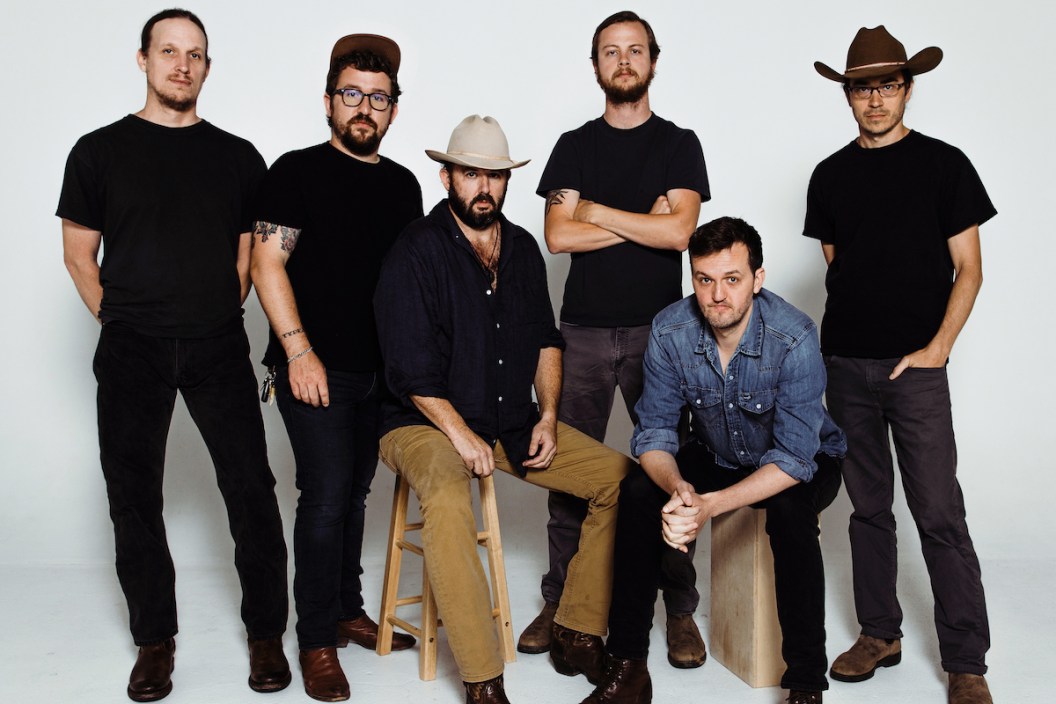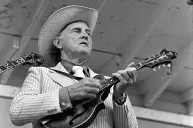[dropcap]T[/dropcap]ypically, coverage of Town Mountain praises the North Carolina-born bluegrass band for stretching the boundaries of a genre that's perceived as resistant to change by incorporating the rawness of Heartland rock, the honky-tonk flair of yesterday's country music and the social consciousness of Appalachian folk storytelling. Though many contemporary bluegrass pickers and listeners oppose such deliberate change, the genre has always thrived and survived because of a spirit of improvisation and innovation that dates back to Bill Monroe himself.
"I make that argument all the time," banjoist Jesse Langlais told Wide Open Country. "There was no traditional bluegrass before Bill Monroe, so inherently, bluegrass music is unique and it was progressive and new and fresh. People often overlook that fact, and they get into the rut of 'it's got to be old or it's not anything.' You know how the argument goes. You've got to stop and really analyze it. Monroe was pulling from all these influences he had and creating a new thing. That right there is just progressive. Pen Vandiver [Monroe's uncle and inspiration] was probably doing some progressive stuff on the violin that was different from the other fiddlers that [Monroe] heard. How far back does that go? Does the tradition ever really start?"
Momentum gained through a 2008 cover of Bruce Springsteen's "I'm on Fire" (from the album Heroes & Heretics) and 2018 Tyler Childers collaboration "Down Low" (from New Freedom Blues) earned Town Mountain a reputation as movers and shakers under the undefinable umbrella of Americana. Taste-making label New West Records came calling recently and will release the band's latest album, Lines in the Levee (out Oct. 7).
Two socially-conscious singles —a title track inspired by 2020's spirit of protest and the environmentally-aware "Seasons Don't Change" —tease the latest evolution of an ever-changing band.
"Folk music has always been a huge influence on me," mandolinist Phil Barker said of the group's clear statements of purpose. "Townes Van Zandt for many songwriters is a huge influence. We have always loved a great song and a great story and the spirit of the worker's movement and even back as far as Woody Guthrie's Dust Bowl songs. The way he was talking about things that he saw in his life and this movement in society. All of those kind of things crept into our songwriting on this record. With the pandemic and having a little more time to reflect, these songs are very personal and super representative of our point of view."
The full-time addition of Sturgill Simpson drummer Miles Miller adds a new element, both live and in studio, for Langlais, Barker, fiddler Bobby Britt, standup bassist Zach Smith and lead singer and guitarist Robert Greer.
"On past albums, we've always brought a drummer in for a track or two here and there because we've always been into the sound that started back with the Osborne Brothers, and Bill Monroe had drums on a couple of his tunes," Barker explained. "It started early into the bluegrass evolution that we're so into, like J.D. Crowe's band in the '70s. We've always been into that sound of acoustic bands with drums. There's always been kind of a stigma in the bluegrass community in general for some reason about drums. For years, we were a little hesitant about it. Over the past couple of albums, we kind of just embraced it more. This is the first album we built from the ground up with a drummer in the studio, and we're committed to having a drummer on all of our shows now to represent this new material."
Miller's constant presence ups the appeal of an eclectic band that already set itself apart from many of its bluegrass-inspired peers.
"We're lucky that our sound can kind of fit into a lot of festivals," Barker said. "We can be in the dance tent of a more traditional, Merle Fest kind of festival, or we can be the more grass-ish band at an outlaw festival or at a jam festival. It definitely gives us a broader spectrum."
For Lines in the Levee, the expanded Town Mountain lineup joined taste-making Americana producer Justin Francis (Kacey Musgraves, Orville Peck) in Nashville at Ronnie's Place, which is part of Sound Stage Studio.
"That was our first time recording at a proper Music Row studio with some history to it," Barker shared. "We picked a gem of a spot. The history of that place is pretty amazing. Outside of Ronnie Milsap, just the number of people that have recorded in there. You can feel that just with the vibe in there of the old, wood panel walls and the old keyboards. The history seeps into you. For me, it was super inspiring and vibey, which is something I always look for in a studio."
Such Lines in the Levee selections as the surreal, John Prine-inspired "Daydream Quarantina" plus the presence of Nashville studio pros the caliber of steel guitar legend Doug Jernigan and Time Jumpers accordion player Jeff Taylor should help back the idealistic yet believable notion that music can bring folks together, even without creative or socio-political compromise.
"I have literally seen somebody in a Make America Great Again hat standing next to a dreadlock dude at a Town Mountain show," Langlais said. "That is Town Mountain. It's a little bit of everybody and everything in between. That was one of the coolest moments ever for me: performing, looking out and seeing that."




